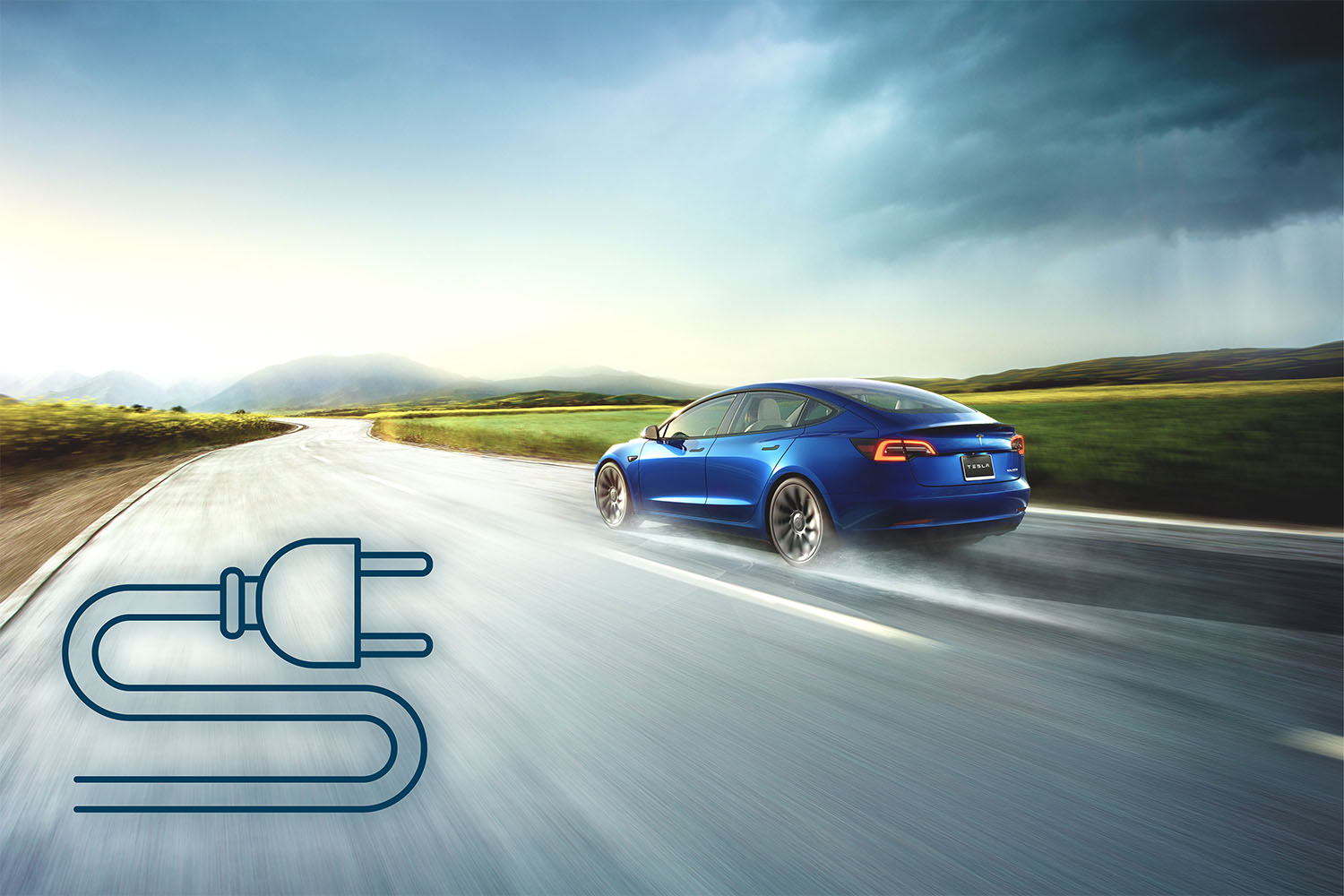What 2021 Sales Tell Us About the Future of EVs
Americans bought almost half a million electric cars last year, but there's still a lot of ground to cover.
 Tesla
Tesla
The automotive industry rode the waves of the coronavirus pandemic in 2021, which wrought seemingly unending supply-chain snags, stubborn inflation, and outbreak-driven plant closures. By the end of the year, Americans had bought just 3.3% more cars, trucks, and SUVs than they did in dismal 2020, and 9.3% fewer than in 2019. But in at least one corner of the market, the picture was quite different.
What Were the Best-Selling Electric Cars in 2021?
Not including gasoline-electric hybrids or plug-in hybrid cars, Americans bought roughly half a million electric vehicles in 2021, an increase of more than 80 percent compared with last year, and a sign of hope for automakers with EV-heavy product plans.
Last year, most EV buyers chose a Tesla, as they did the year before and the year before that. The two best-selling electric cars in 2021 were the Tesla Model Y, with roughly 188,600 copies sold, and the Tesla Model 3 (140,500). Each Tesla easily outsold the next best-selling EV, the Ford Mustang Mach-E (24,828). But unlike most automakers, Tesla reports only production numbers and not sales, so determining how many of its cars made it into customers’ hands is an act of triangulation. According to AutoPacific, Tesla sold 352,600 cars last year, putting it in company with BMW, Mazda, and Mercedes-Benz.
Is Tesla's Long Reign Under Threat?
Traditional automakers have been playing catch-up to Tesla in the electric-car segment for years, and while none is (yet) close to touching Tesla’s sales success, the market is coalescing around a decidedly different kind of EV than we might have expected five or certainly 10 years ago. However, older EVs such as the Chevrolet Bolt and Nissan Leaf still have fans, moving 24,848 and 14,239 units last year, respectively. But as automakers unveil their future battery-electric fleets, performance, range, and pleasing—or at least interesting—design are proving to be key attributes. The drone-like, city-focused EVs car enthusiasts feared in the pre-Tesla days have never come to pass.
Kia nixed plans to bring its next-generation Soul EV to the U.S. after failing to gain an audience with the last generation’s
2021's sales numbers prove interest is growing in battery-only EVs, but they're still a niche product, representing around 4% of the U.S. market last year. Ed Kim, president and chief analyst at AutoPacific, says that if there's to be an inflection point for EVs, it will come in 2022 or 2023, and will be based on a few key models' success for launch this year and next.
Among them, the F-150 Lightning battery-electric pickup Ford unveiled last spring. Ford reportedly collected 200,000 pre-orders for the truck (secured with $100 refundable deposits) before capping orders in December. Those figures would have made the Lightning the best-selling EV on the market in 2021. But not so fast: Ford says it will take 2 years to ramp F-150 Lightning production up to 150,000 units per year, and though high demand for pre-orders has foretold success in the past—think Ford Bronco and Tesla Model 3—real demand could still fluctuate based on gas prices, public perception of the truck’s capabilities, and Ford’s ability to pull off high-volume EV manufacturing. For EVs to launch into the mainstream, average drivers will have to trade their gas-powered vehicles for plug-in ones. In America, “average” is a truck, so look for the signal in sales of vehicles like the Ford F-150 Lightning and Chevrolet Silverado EV.
Will We All Be Driving Electric Cars by 2035?
Many automakers worldwide have recently announced plans to go all-electric, part of a larger goal to be carbon-neutral in their products and operations.
Battery-electric cars are more expensive on average than similar gas-powered cars, and GM and Tesla have already run through their allotments of the $7,500 federal tax credits that have helped ease the financial burden of buying an EV. Ford, Nissan, and Toyota are close behind.
Rapid EV adoption might strain public charging infrastructure, which is lacking outside city centers. The U.S. government’s plan to spend $5 billion to build a national network of charging stations is one step toward alleviating this challenge.
And there were still growing pains in EV production in 2021.
What’s the Immediate Future of Electric Cars?
If you’re an electric car enthusiast, last year’s sales reports held unequivocal good news. But it’s still too soon to say whether or when Americans will shift en masse to electric vehicles.
There’s some reason to expect that demand for electric cars could keep rising quickly.
Written by humans.
Edited by humans.
 Annie White
Annie WhiteAfter earning a degree in political science from Boston University in 2012, Annie White wisely chose to put those skills aside to pursue a career writing about cars. Since then, she has driven and reviewed hundreds of vehicles representing the full spectrum of the market and has also written about automotive technology and business trends. Her dream car is a Geo Tracker.
Related articles
View more related articles